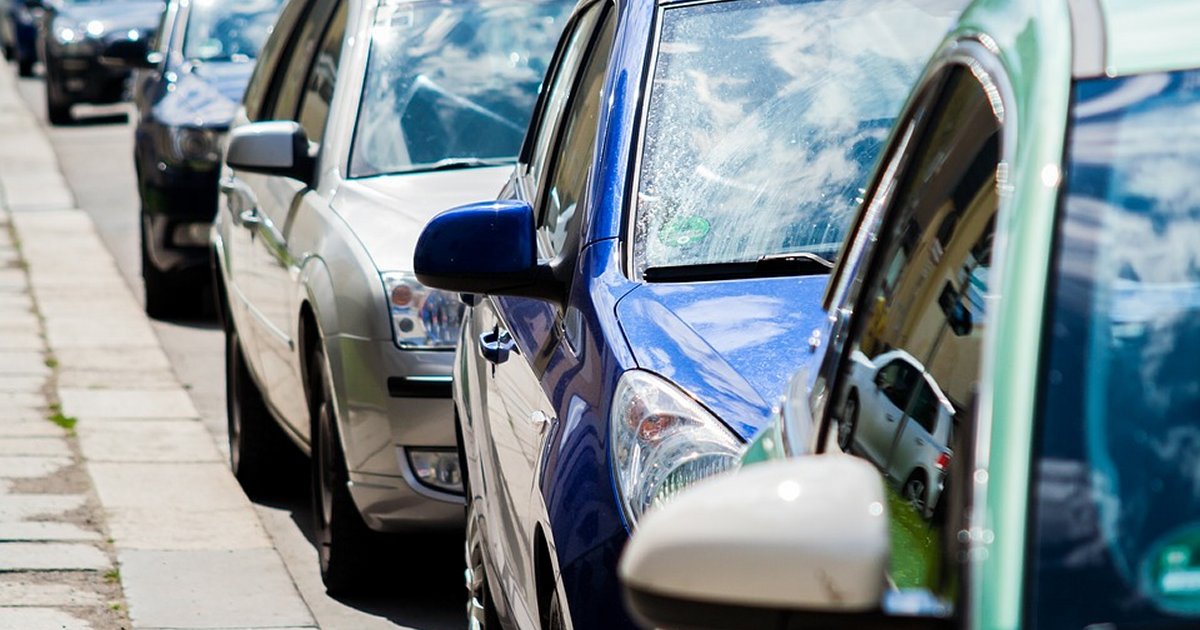
How much could Australian motorists collectively save with strong fuel efficiency standards in place? $11 billion over five years claims a new report. Here’s how.
What Are Fuel Efficiency Standards?
Fuel efficiency standards involve an average emissions or efficiency benchmark/target set for vehicle manufacturers. A manufacturer’s performance against a target is based on the average of what they sell across their fleets over a year within the country where a standard exists. The standards may be tightened over time, further pushing down average emissions.
This doesn’t necessarily stop a manufacturer from shipping its petrol guzzlers into countries with mandatory fuel efficiency standards, but it’s required to offset the emissions impact with very low or zero emissions vehicles. Going above the average emissions limit results in hefty financial penalties for the manufacturer.
There’s very strong incentive for manufactures to ship their more fuel- efficient internal combustion engine (ICE) and electric cars to countries with fuel efficiency standards – and to dump more emissions-intensive vehicles in countries that don’t.
More than 80% of cars sold globally are already covered by such standards. But the lack of mandatory fuel efficiency standards in Australia means we get more petrol-guzzlers; with Australians paying the price at the pump and our planet paying the price at the tail-pipe.
Why Don’t We Have Fuel Efficiency Standards Yet?
The answer is simple – up until reasonably recently, a lack of political will from the party in power. When Labor signalled its intentions to introduce fuel efficiency standards if it won the 2019 election, this was met with a bunch of misinformation and disinformation from those opposed. This included a Liberal Facebook campaign proclaiming:
“Labor’s car tax would mean higher prices on some of Australia’s most popular cars.”
The standards are not a tax. SQ’s Ronald went into detail as to what fuel efficiency standards are/aren’t in this article.
How Much Could Motorists Save?
According to a report released by Solar Citizens yesterday titled Recharging Australia, a fuel efficiency standard for light vehicles in line with that of the European Union would save Australian motorists $11.2 billion in fuel costs over five years. And the financial benefits would be greater for regional drivers as they tend to have a higher rate of car ownership, longer average commutes and pay more at the pump.
Of course, there’s also the very nice bonus of cleaner air!
“With Australians facing high interest rates, high fuel prices and energy bills, saving at least $11.2 billion over five years and $52 billion over ten years would be welcome news for Australian families,” said Solar Citizens’ Clean Transport Campaigner Ajaya Haikerwal.
Solar Citizens says introducing EU-aligned standards will greatly accelerate availability, affordability and uptake of electric vehicles; estimating registrations could grow to more than 913,359 in five years.
Mr. Haikerwal pointed out that with millions of Australian households and businesses reaping the rewards of installing solar power systems, the “perfect way” to slash petrol bills is to combine rooftop solar with electric vehicles.
Where’s Australia At With Fuel Efficiency Standards Now?
In the lead-up to the last election, Labor was more cautious about expressing its desire for introducing these standards. But with the election out of the way and Labor at the helm, the Albanese Government released a discussion paper for its National Electric Vehicle Strategy in September last year. The 18-page paper mentioned the term “fuel efficiency standards” 18 times.
According to an analysis of the 212 submissions from organisations, 73% were in favour of a fuel efficiency standard – and none opposed.
So, it would appear the Albanese Government has plenty of support for their introduction. It’s not clear what or when the next move will be, but it’s certainly time to put the pedal to the metal.

 RSS - Posts
RSS - Posts



Michael Bloch,
“According to an analysis of the 212 submissions from organisations, 73% were in favour of a fuel efficiency standard – and none opposed.”
Based on evidence/data I see, I’d suggest a fuel efficiency standard in Australia is now TOO LITTLE & TOO LATE.
See my Submission (#165) to the Australian Parliament House of Representatives Standing Committee on Agriculture for their Inquiry into Food Security in Australia, published on their inquiry submissions webpage.
https://www.aph.gov.au/Parliamentary_Business/Committees/House/Agriculture/FoodsecurityinAustrali/Submissions
We/humanity need to be rapidly reducing petroleum dependency. Introducing a fuel efficiency standard now in Australia will take several years to decades to see a significant change. I’d suggest we/humanity don’t have several years to decades to waste.
Solar Citizens argue Australia could save $11.2 billion in fuel costs over five years by imposing a fuel efficiency standard for light vehicles, but what they don’t say is the capital cost to achieve this.
The 2019 Brakel article for instance compares a 22 km per litre new vehicle to a 12.8 km per litre old vehicle and argues savings based on switching vehicles. Except a small city hatchback in Australia can maybe already do 14-17 km per litre, and a full-sized family SUV or dual cab 4WD ute around 10 km per litre. So current norms for cars are already slightly better than Brakel’s model. Conversely even the most efficient supermini city cars available in Britain don’t achieve that 22 km per litre figure. And while the Suzuki Swift is available in Australia, you’re paying around Corolla prices but not getting the leg room, and the boot is missing so it’s no good as a family car or for groceries.
What’s the solution? People need cars with range and space. Fuel efficiency is nice, but not a necessity. And electronic gadgets, widgets, and near self driving capability may be interesting, but they’re definitely not a requirement – though slightly better than Model T Ford tech is. Unfortunately many cars are sold with the inverse priority list.
George Kaplan,
“Fuel efficiency is nice, but not a necessity.”
Until the price of fuel becomes increasingly more expensive; or worse, the supply of fuel becomes restricted/rationed. C’est la vie!
You can make a similar argument about solar – without a reliable fossil fuel backup generator you run the risk of running out of power when the sun goes MIA.
Electricity is supposed to be going up 20% or 30% come June – depending on which state you’re in. How much will it rise next year or the year after? And as the coal power plants that provide the basis for reliable energy are phased out, you have increasingly unreliable power with increasingly high prices, which will drive those who can afford it off-grid and onto batteries. Except while fuel is readily available the sun can’t be relied on 24/7, 365 days a year.
There are no perfect solutions, especially for those not on 6 figure incomes.
George Kaplan,
“And as the coal power plants that provide the basis for reliable energy are phased out…”
Data indicates coal plants are not as reliable as you suggest – see my comments at:
https://www.solarquotes.com.au/blog/minns-energy-nsw-mb2875/#comment-1533569
“Except while fuel is readily available the sun can’t be relied on 24/7, 365 days a year.”
Meanwhile, OPEC+ announced earlier today they intend further crude oil production cuts:
* Saudi Arabia: _ _ _ _ _ _-500 thousand barrels per day (kb/d);
* Iraq: _ _ _ _ _ _ _ _ _ _ -211 kb/d;
* United Arab Emirates: _-144 kb/d;
* Kuwait: _ _ _ _ _ _ _ _ _-128 kb/d;
* Algeria: _ _ _ _ _ _ _ _ _ -48 kb/d;
* Kazakhstan: _ _ _ _ _ _ _-78 kb/d;
* Oman: _ _ _ _ _ _ _ _ _ _-40 kb/d;
TOTAL: _ _ _ _ _ _ _ _ _ -1149 kb/d
https://www.reuters.com/business/energy/sarabia-other-opec-producers-announce-voluntary-oil-output-cuts-2023-04-02/
Here’s a thought: What if the latest announced OPEC+ oil production quota cuts are happening because they cannot meet/sustain the current ones?
I’d suggest rising fuel prices and perhaps even supply restrictions/rationing may perhaps be happening much sooner than you expect, aye George?